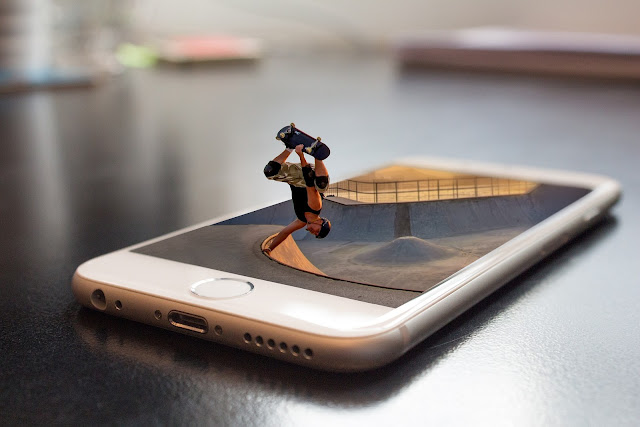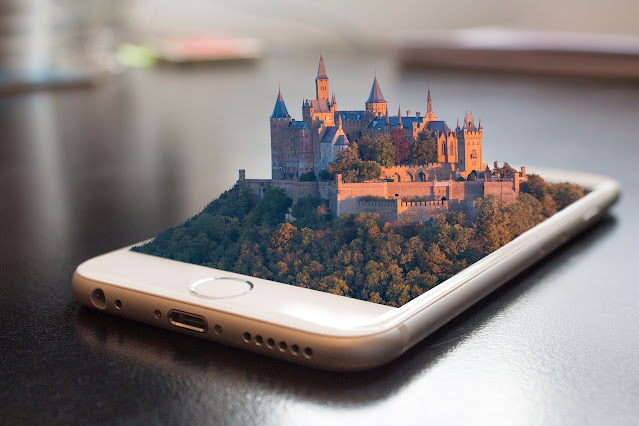Smartphones are eating your time!
Smartphones have become an integral part of our daily lives. They allow us to stay connected with our friends and loved ones, access important information, and even manage our daily tasks. However, smartphones can also be a major source of distraction, pulling us away from the present moment and hindering our ability to focus on the things that are truly important.
One of the main ways that smartphones distract us is through the constant notifications that we receive. Every time a new message, email, or social media update arrives, we are pulled out of our current activity and into our phone. This constant interruption can make it difficult to focus on anything for any length of time, resulting in decreased productivity and a sense of feeling overwhelmed.
Another way that smartphones distract us is through the sheer number of apps that are available. With so many options to choose from, it can be easy to get lost in a sea of notifications, games, and social media platforms. This can be especially true for those who use their phone as a source of entertainment during down time.
The addiction of smartphone also increase the need to be constantly connected. The constant need to check notifications, updates, and messages can lead to feelings of anxiety and FOMO (fear of missing out). It can also lead to a loss of privacy and a lack of personal boundaries.
Smartphones can be a major distraction while driving. The National Safety Council estimates that using a phone while driving increases the risk of a crash by up to four times. It's important to not use phone while driving and pay attention on the road.
Smartphones can also be a distraction in social settings. Being too focused on our phones can prevent us from fully engaging in conversations and interacting with the people around us. It can also create a sense of disconnection and isolation.
Smartphones can also distract us during important tasks, such as studying or working. The constant distractions of notifications and apps can make it difficult to focus and retain information.
Smartphones can also distract us from physical activities and self-care practices. Being too focused on our phones can prevent us from engaging in physical activities such as exercise or spending time in nature.
Smartphones can also have an impact on our relationships and emotional well-being. Constant distractions can make it difficult to fully connect with our loved ones, and the constant notifications and social media updates can increase feelings of stress, anxiety, and depression.
Additionally, smartphones also have negative impact on our mental and physical health, such as poor sleep, strained eyesight, and even anxiety and depression.
To combat the distractions of smartphones, it is important to set boundaries and to use our phones in a way that is mindful and intentional. One way to do this is to schedule specific times of the day to check notifications and social media, rather than allowing them to take over your every waking moment. Another is to limit the number of apps that you have installed on your phone and to be mindful of how you use them. It’s also good to schedule some time to disconnect from phone and engage with our loved ones or hobbies.
How to overcome smartphone addiction?
Overcoming the distractions of smartphones can be a challenging task, but there are a number of strategies that can help:
- Set boundaries: Set specific times of the day when you will check your phone and stick to them. For example, you could choose to only check your phone during designated breaks, or to turn off all notifications outside of working hours.
- Use apps and settings to help manage distractions: Many smartphones have built-in features that can help you manage distractions, such as "Do Not Disturb" mode, which silences all notifications. Additionally, there are apps available that can help you manage your phone usage, such as "BreakFree" and "AppDetox" that track your phone usage and remind you to take breaks from your phone.
- Engage in activities that don't involve your phone: Instead of relying on your phone for entertainment or relaxation, try to engage in activities that don't involve your phone, such as reading, exercising, or spending time in nature.
- Be mindful of your phone usage: When using your phone, be mindful of the apps and activities that you are engaging in. Try to limit the amount of time you spend on social media or games and focus on the apps and activities that are most important to you.
- Make use of apps that help disconnect: There are apps available which are designed specifically to help with disconnection, such as “Calm”, “Headspace”, and “OFFTIME”, which can help you disconnect, meditate, and relax.
- Put your phone away during important activities: In certain scenarios, it may be best to put your phone away altogether. When driving, studying, working or socializing, it's a good idea to put your phone out of sight and reach to avoid being distracted.
- Plan technology-free time: Set aside time to completely unplug and disconnect from your technology. This could be a time of the day, or a day of the week. Give yourself time to focus on yourself, your loved ones and your surroundings.
It's important to remember that smartphones can be a powerful tool, but it’s also important to be aware of the ways in which they can distract us from our daily lives. By being mindful of our phone usage and setting boundaries, we can take control of our smartphones instead of allowing them to control us.




0 Comments